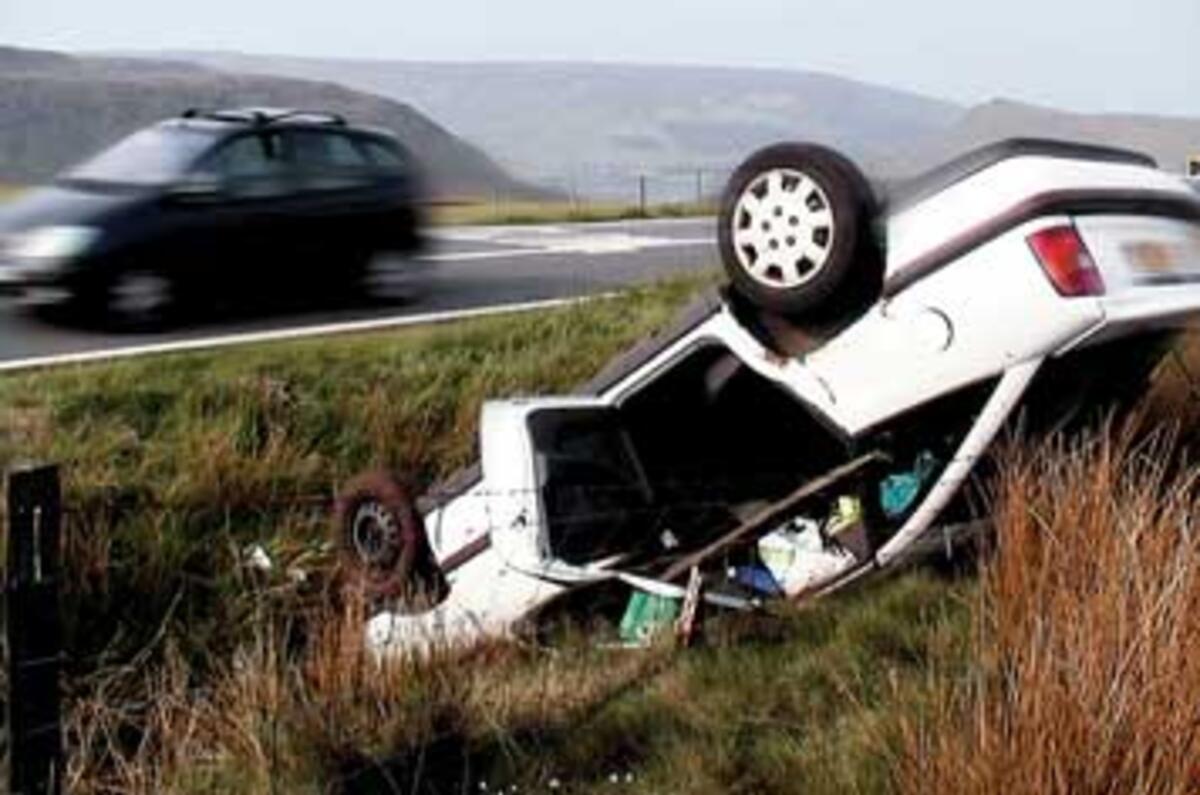Half of all fatal road crashes in the UK occur on 10 per cent of Britain's roads, a report from the Road Safety Foundation has revealed.
The report - Saving Lives for Less - covered 28,000 miles of A-roads and motorways in the UK, and revealed Scotland to have the highest-risk highways on average, followed by northern England.
The A357 between Macclesfield and Buxton was identified in the report as the most dangerous road in the UK.
The Road Safety Foundation suggests that, by investing small sums of money in making accident blackspots safer, the high cost of emergency services and hospitals could be reduced.
The A40 between Llandovery and Carmarthen was identified as the most improved road, where improved junctions and markings, combined with new high friction, anti-skid surfaces saw the number of serious accidents fall from 27 to just seven from 2005 to 2008.
The West Midlands was identified as the safest region, while the report noted that the number of fatal crashes had decreased by five per cent in the last three years.
Top 10 dangerous roads
A357 Macclesfield to Buxton - Cheshire/DerbyshireA5012 Pikehall to Matlock - DerbyshireA621 Baslow to Totley - Derbyshire/South YorkshireA625 Calver to Sheffield - South YorkshireA54 Congleton to Buxton - DerbyshireA581 Rufford to Chorley - LancashireA5004 Whaley Bridge to Buxton - DerbyshireA675 Blackburn to Preston - LancashireA61 Barnsley to Wakefield - South/West YorkshireA285 Chichester to Petworth - West Sussex




Join the debate
Add your comment
Re: Britain's most dangerous roads
The thing with straight six man, if he's telling the truth (which I severely doubt - he wanted to look like a big man for going fast when really his push-bike won't top 20...), is that it is difficult to judge closing speed of a car behind - how long are you going to look in the mirror to determine the rate they're closing when you have stuff going on in front of you? If a car is doing 60mph in a 60, pulls out around a car doing 50mph they see a car way back in the distance, it might just be a set of lights. They check again and pull out - next thing they know the car that they assumed may have been doing 70, maybe even 80 at a push, is doing 115 and it bearing down on them fast. We don't have autobahn speeds here - if there's a large gap behind you in that lane then normally it's safe to move over - judging speed, especially in poor light, can be very difficult (and if the closing speed is 55mph faster than you're going!)
Re: Britain's most dangerous roads
If they need to change lanes, and there are legitimate reasons to even if there is no other traffic
On a similar tale to a car changing lanes in front of you for no reason. A couple of months ago on my way home late at night on the M6 north were the M6 Toll joins, (some of you may know it, the outside lane separates up an incline) travelling around the Ton in the inside lane as there was virtually no traffic,I approached another car, I moved out to overtake, He moved out, He then proceeded to move out to the outside lane. By now I had slowed to approx 80. He took the inclined lane, I moved back to the inside lane which was perfectly clear and accelerated back to my previous speed. Half a mile further on the lanes join back together. In my mirror the car which had changed lanes for no reason was being nicked by the boys in blue.
car in front spotting that there's a big speed differential
They should be paying attention in the rear view mirror, So many people don't use it once they have passed their test. If people did pay attention, there would be less people pulling out directly in front of other motorists, and hence less accidents. Saying that the person behind is at fault is not always correct.
Re: Britain's most dangerous roads
Straight six man stop being a plonker.... is everybody else starting to side with the Mini driver here?